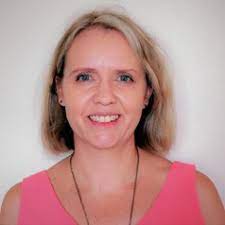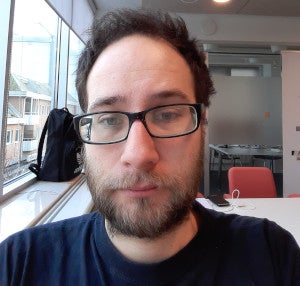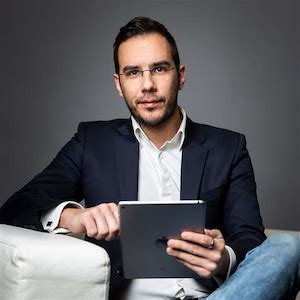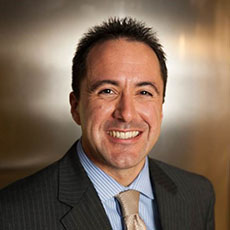Feature Articles
European Commission Releases Study on the Impact of Open Source
German Health System Adopts Open Source Matrix as Instant Communications Platform
 Gematik, the provider of digital solutions for the German health care system has chosen the open source Matrix protocol to underpin Germany’s new instant communication platform, which will be used by over 150.000 organisations, such as general practitioner offices, hospitals, and insurance organisations. The decision follows examples such as the German armed forces and France’s government adopting Matrix as the basis for their instant communication needs.
Gematik, the provider of digital solutions for the German health care system has chosen the open source Matrix protocol to underpin Germany’s new instant communication platform, which will be used by over 150.000 organisations, such as general practitioner offices, hospitals, and insurance organisations. The decision follows examples such as the German armed forces and France’s government adopting Matrix as the basis for their instant communication needs.
The ‘privacy by design’ approach for mobile apps: why it is not enough
 The mobile apps installed on our smartphones are one of the biggest threats to our digital privacy. They are capable of collecting vast amounts of personal data, often highly sensitive. The consent model on which privacy laws are based doesn’t work. App users remain concerned about privacy, as a recent survey shows, but they still aren’t very good at protecting it. They may lack the technical know-how or the time to review privacy terms, or they may lack the willpower to resist the lure of trending apps and personalized in-app offers...
The mobile apps installed on our smartphones are one of the biggest threats to our digital privacy. They are capable of collecting vast amounts of personal data, often highly sensitive. The consent model on which privacy laws are based doesn’t work. App users remain concerned about privacy, as a recent survey shows, but they still aren’t very good at protecting it. They may lack the technical know-how or the time to review privacy terms, or they may lack the willpower to resist the lure of trending apps and personalized in-app offers...
Accessibility In Open Source For People With ADHD, Dyslexia, And Autism Spectrum Disorder
 For a long time, attention deficit hyperactivity disorder (ADHD), autism, Asperger syndrome, dyslexia, and other neurodiverse conditions were considered things that hold people back. But now, many researchers and employers recognize that neurodiversity is a competitive advantage, especially in technology, and especially when certain accommodations are provided. This is certainly true for me. I'm a 39-year-old teacher in Sweden diagnosed with ADHD and Asperger's (also referred to as Autism Level 1). I'm also an intermediate Linux user and use it daily for Java programming, productivity, and gaming. I've been using Linux since the late 1990s, and I've learned ways open source programs can be made more accessible for people with these conditions.
For a long time, attention deficit hyperactivity disorder (ADHD), autism, Asperger syndrome, dyslexia, and other neurodiverse conditions were considered things that hold people back. But now, many researchers and employers recognize that neurodiversity is a competitive advantage, especially in technology, and especially when certain accommodations are provided. This is certainly true for me. I'm a 39-year-old teacher in Sweden diagnosed with ADHD and Asperger's (also referred to as Autism Level 1). I'm also an intermediate Linux user and use it daily for Java programming, productivity, and gaming. I've been using Linux since the late 1990s, and I've learned ways open source programs can be made more accessible for people with these conditions.
ONC Timeline for TEFCA Going Live in 2022
 Today we are pleased to announce the timeline for the Trusted Exchange Framework and Common Agreement (TEFCA). The 21st Century Cures Act, signed by President Obama in 2016, calls on ONC to "develop or support a trusted exchange framework, including a common agreement among health information networks nationally."... The timeline released today-for completion of the Trusted Exchange Framework, the Common Agreement Version 1 and the Qualified Health Information Network (QHIN) Technical Framework (QTF) Version 1-establishes our goal to have this new network open for participation in the first quarter (Q1) of calendar year 2022.
Today we are pleased to announce the timeline for the Trusted Exchange Framework and Common Agreement (TEFCA). The 21st Century Cures Act, signed by President Obama in 2016, calls on ONC to "develop or support a trusted exchange framework, including a common agreement among health information networks nationally."... The timeline released today-for completion of the Trusted Exchange Framework, the Common Agreement Version 1 and the Qualified Health Information Network (QHIN) Technical Framework (QTF) Version 1-establishes our goal to have this new network open for participation in the first quarter (Q1) of calendar year 2022.
Moving Towards An Open Platform Paradigm: The Digital Health Strategy For Catalonia
 At the 2021 Digital health & Wellness Summit 2021 (DHWS21) in Barcelona, it was clear that integrated care based on openEHR will be a major focus for Catalonia's healthcare. Catalonia is a globally respected region for its innovative approach to healthcare. The major challenge the region faces is similar to what most healthcare organizations are seeing: inability to share or access data between different systems...The current EHR systems are also proving to be too expensive to maintain, as discussed by members of the panel. For this reasons the region has opted for a different approach. Catalonia is now investing 40 million Euros in a new digital health strategy that focuses on developing a new model of information systems and electronic health records (EHRs) that are based on openEHR’s - open data standards.
At the 2021 Digital health & Wellness Summit 2021 (DHWS21) in Barcelona, it was clear that integrated care based on openEHR will be a major focus for Catalonia's healthcare. Catalonia is a globally respected region for its innovative approach to healthcare. The major challenge the region faces is similar to what most healthcare organizations are seeing: inability to share or access data between different systems...The current EHR systems are also proving to be too expensive to maintain, as discussed by members of the panel. For this reasons the region has opted for a different approach. Catalonia is now investing 40 million Euros in a new digital health strategy that focuses on developing a new model of information systems and electronic health records (EHRs) that are based on openEHR’s - open data standards.
Lessons In Openness From Japan's "Business Reinvention"
 In The Business Reinvention of Japan, Ulrike Schaede explores Japan's approach to economic development in the late 20th and early 21st century. Her thesis is that this approach-what she calls an "aggregate niche strategy"-offers important lessons for the West by balancing the pursuit of corporate profit with social stability, economic equality, and social responsibility and sustainability. It's also a case study in the power of open organization principles, which come to life in Schaede's account. I would argue that Japan's "aggregate niche strategy" was successful, in part, because of them. In this review, I'll explore Schaede's argument about Japan's economic development in order to demonstrate how open principles played a role in Japan's "reinvention." In this first part, I'll provide some historical, economic context necessary for understanding Schaede's argument. In the next part, I'll explore in more detail the implications of Japan's strategy and the role open principles clearly played in it.
In The Business Reinvention of Japan, Ulrike Schaede explores Japan's approach to economic development in the late 20th and early 21st century. Her thesis is that this approach-what she calls an "aggregate niche strategy"-offers important lessons for the West by balancing the pursuit of corporate profit with social stability, economic equality, and social responsibility and sustainability. It's also a case study in the power of open organization principles, which come to life in Schaede's account. I would argue that Japan's "aggregate niche strategy" was successful, in part, because of them. In this review, I'll explore Schaede's argument about Japan's economic development in order to demonstrate how open principles played a role in Japan's "reinvention." In this first part, I'll provide some historical, economic context necessary for understanding Schaede's argument. In the next part, I'll explore in more detail the implications of Japan's strategy and the role open principles clearly played in it.
Report on ONC's Public Health Data Systems Hearing: Ensuring a Data-Driven Response to COVID-19
 As part of HHS's response to President Biden's Executive Order on Ensuring a Data-Driven Response to COVID-19 and Future High-Consequence Public Health Threats, ONC's Health Information Technology Advisory Committee (HITAC) recently held an expert panel hearing to understand the performance of public health data systems during the COVID-19 pandemic response and other gap areas in current infrastructure ... Forthcoming recommendations from the Public Health Data Systems Task Force will identify and prioritize policy and technical gaps to be addressed in order to help ensure a more effective response to future public health threats. These recommendations are expected to be issued later this summer.
As part of HHS's response to President Biden's Executive Order on Ensuring a Data-Driven Response to COVID-19 and Future High-Consequence Public Health Threats, ONC's Health Information Technology Advisory Committee (HITAC) recently held an expert panel hearing to understand the performance of public health data systems during the COVID-19 pandemic response and other gap areas in current infrastructure ... Forthcoming recommendations from the Public Health Data Systems Task Force will identify and prioritize policy and technical gaps to be addressed in order to help ensure a more effective response to future public health threats. These recommendations are expected to be issued later this summer.
What Next-Generation Leaders Expect: The Choice To Work Openly
 Earlier in this series on talent management, I argued that emerging, talented leaders need space to flow to those places in the organization where they add value based on their unique talents and intrinsic motivations. If the organization's management and senior management set the right examples, extend trust, and listen, they can greatly accelerate the organization's transformation to a more open culture. But talent needs access to an organization's cliques and inner circles, its boards and executive teams, to really kickstart the kind of collaboration and mutual learning that will move the organization forward and create sustainable succession.
Earlier in this series on talent management, I argued that emerging, talented leaders need space to flow to those places in the organization where they add value based on their unique talents and intrinsic motivations. If the organization's management and senior management set the right examples, extend trust, and listen, they can greatly accelerate the organization's transformation to a more open culture. But talent needs access to an organization's cliques and inner circles, its boards and executive teams, to really kickstart the kind of collaboration and mutual learning that will move the organization forward and create sustainable succession.
Comment Period for the Draft Project US@ Specification to Open Soon
 As we continue to learn more about all of the factors that affect our health, where we live has proven to become more insightful over time. Our ability to study and measure health impacts, conduct public health monitoring across communities, deliver medications safely to patients, and a number of other efforts rely on the availability and accuracy of patient address data. Clinicians, researchers, and public health professionals must also have the ability to successfully link disparate records, which also requires standardized data.
As we continue to learn more about all of the factors that affect our health, where we live has proven to become more insightful over time. Our ability to study and measure health impacts, conduct public health monitoring across communities, deliver medications safely to patients, and a number of other efforts rely on the availability and accuracy of patient address data. Clinicians, researchers, and public health professionals must also have the ability to successfully link disparate records, which also requires standardized data.
To Nurture Open Leaders, Managers Must Learn To Let Go
 In my previous article on talent development in open organizations, I explained how senior and upper-level managers can help young leadership talent develop without taking an entirely "hands off" approach. The truth is that leadership talent rarely develops on its own, and if organizations wishing to become more open want to see open leaders thrive, upper management has a specific job to do. It must create balance-not only between the organization's conventional management principles and more open ones, but also (as I've explained before) between reason and feeling, head and heart. In other words, this involves creating a balance between individual ego and collective needs. These are the primary conditions for getting the entire organization moving in an open direction.
In my previous article on talent development in open organizations, I explained how senior and upper-level managers can help young leadership talent develop without taking an entirely "hands off" approach. The truth is that leadership talent rarely develops on its own, and if organizations wishing to become more open want to see open leaders thrive, upper management has a specific job to do. It must create balance-not only between the organization's conventional management principles and more open ones, but also (as I've explained before) between reason and feeling, head and heart. In other words, this involves creating a balance between individual ego and collective needs. These are the primary conditions for getting the entire organization moving in an open direction.
ONC's Efforts to Advance Worldwide Digital Health - The Global Digital Health Partnership White Papers
 As the world responds to the COVID-19 pandemic, we continue to see how digital health plays a vital role in care delivery. ONC recognizes the importance of advancing digital health at domestic and global levels. As discussed in a previous blog post, part of ONC's global engagement includes representing the United States in the Global Digital Health Partnership (GDHP). The GDHP currently runs five work streams: Interoperability, Clinical and Consumer Engagement, Cyber Security, Evidence and Evaluation, and Policy Environments.
As the world responds to the COVID-19 pandemic, we continue to see how digital health plays a vital role in care delivery. ONC recognizes the importance of advancing digital health at domestic and global levels. As discussed in a previous blog post, part of ONC's global engagement includes representing the United States in the Global Digital Health Partnership (GDHP). The GDHP currently runs five work streams: Interoperability, Clinical and Consumer Engagement, Cyber Security, Evidence and Evaluation, and Policy Environments.
Upstream Conference to Feature Open Source Maintainers
 Imagine the chaos that would occur if all open source software vanished with the snap of a finger. Picture the devices that would turn to bricks in our hands, the infrastructure that would fail, and the machinery that would fall silent. The truth is we probably don't stop to think about all the open source libraries, frameworks, and components we depend on-until something goes wrong. The extraordinary impact of open source is difficult to measure or quantify...Open source is a testament to human ingenuity, and it's not often that we take the time to celebrate what we-the creators and users of open source-have made together. We think it's time we did. That's why we're announcing a new type of open source event called Upstream. It's a one-day celebration of open source for the developers who use it and the maintainers that create it. We'd like you to join us on June 7 for this entirely virtual and free event where we'll focus on the creators behind essential open source packages and the developers who build amazing things with them.
Imagine the chaos that would occur if all open source software vanished with the snap of a finger. Picture the devices that would turn to bricks in our hands, the infrastructure that would fail, and the machinery that would fall silent. The truth is we probably don't stop to think about all the open source libraries, frameworks, and components we depend on-until something goes wrong. The extraordinary impact of open source is difficult to measure or quantify...Open source is a testament to human ingenuity, and it's not often that we take the time to celebrate what we-the creators and users of open source-have made together. We think it's time we did. That's why we're announcing a new type of open source event called Upstream. It's a one-day celebration of open source for the developers who use it and the maintainers that create it. We'd like you to join us on June 7 for this entirely virtual and free event where we'll focus on the creators behind essential open source packages and the developers who build amazing things with them.
SERVANT LEADERSHIP --- A Challenging Imperative for Lasting Success
 Drawing from various models of servant leadership, there is one common theme - it's not about you; it's about others. Servant leadership is not unique to thought leaders, philosophers, military leaders, or sports figures. It is available to all of us. As expressed by Robert K. Greenleaf, a long-time AT&T executive who brought the concept of servant leadership from ancient times to present day, "good leaders must first become good servants." If this concept isn't bound by industry, culture, or demographic, shouldn't we all give it a try? Personal and company success is the byproduct of doing the best we can to make others' lives better.
Drawing from various models of servant leadership, there is one common theme - it's not about you; it's about others. Servant leadership is not unique to thought leaders, philosophers, military leaders, or sports figures. It is available to all of us. As expressed by Robert K. Greenleaf, a long-time AT&T executive who brought the concept of servant leadership from ancient times to present day, "good leaders must first become good servants." If this concept isn't bound by industry, culture, or demographic, shouldn't we all give it a try? Personal and company success is the byproduct of doing the best we can to make others' lives better.
6 Examples Of Open Source Best Practices In Knowledge-Sharing Projects
 The very effort of creating open source software is a massive knowledge-sharing experience, covering all the domains of software development with many methods and practices. Although there is rarely only one way to achieve a goal, open source communities have, over time, honed their knowledge into best practices as a natural byproduct of the open collaboration and transparency passed on within their respective communities. But what about best practices that span communities, which are useful beyond the unique needs of a single project and broadly applicable to any and all open source software efforts? I'll look at six different knowledge-sharing communities that take six approaches to gathering, maintaining, and distributing their best practices.
The very effort of creating open source software is a massive knowledge-sharing experience, covering all the domains of software development with many methods and practices. Although there is rarely only one way to achieve a goal, open source communities have, over time, honed their knowledge into best practices as a natural byproduct of the open collaboration and transparency passed on within their respective communities. But what about best practices that span communities, which are useful beyond the unique needs of a single project and broadly applicable to any and all open source software efforts? I'll look at six different knowledge-sharing communities that take six approaches to gathering, maintaining, and distributing their best practices.
 The European Commission’s landmark study on the impact of Open Source Software and Hardware finds that investments in open source software can be a major boost to the EU’s post-recovery economy, digital transformation and digital autonomy...The economic analysis shows that the open source sector is mature to the point of being considered for a tailored industrial policy, as well as inclusion in the EU’s major policy frameworks, such as the European Green Deal and the AI Act.
The European Commission’s landmark study on the impact of Open Source Software and Hardware finds that investments in open source software can be a major boost to the EU’s post-recovery economy, digital transformation and digital autonomy...The economic analysis shows that the open source sector is mature to the point of being considered for a tailored industrial policy, as well as inclusion in the EU’s major policy frameworks, such as the European Green Deal and the AI Act.